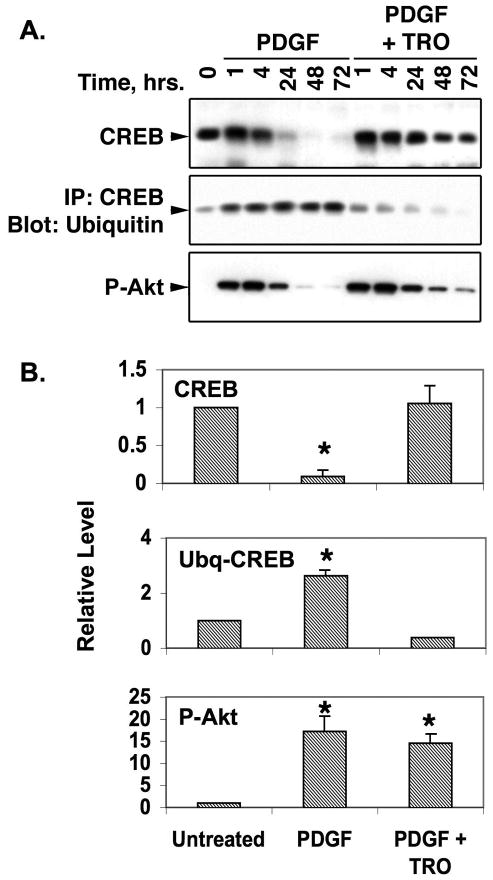Figure 3. TRO inhibits CREB ubiquitination but not activation of Akt by PDGF.
PA SMCs were grown in DMEM containing 0.2% fetal calf serum and treated with 25 ng/ml PDGF with or without 1 uM TRO for the times shown above each lane. At each time point, cells were harvested, lysed and equal amounts of protein separated on polyacrylamide-SDS gels and transferred to PVDF membranes. A) Blots were probed with antibodies against total CREB or P-Akt as indicated. For the panel labeled IP:CREB/Blot:Ubiquitin, equal amounts of lysate protein were first subjected to immunoprecipitation with anti-CREB antibody and the precipitated material was separated on polyacrylamide-SDS gels and transferred to membranes. These blots were probed with an ubiquitin-specific antibody. B) Blots from three separate experiments were scanned into an Apple MacBook Pro computer and the band density and area at the 48 hour time point was measured with ImageJ software. The averaged data are shown relative to band densities for the 48 hour normoxic samples. * indicates p ≤ 0.05. The results show that PDGF stimulates CREB ubiquitination and depletion in SMCs concomitant with an increase in Akt activity. While TRO blocks CREB ubiquitination and loss, it has no effect on PDGF-stimulation of Akt activity.

